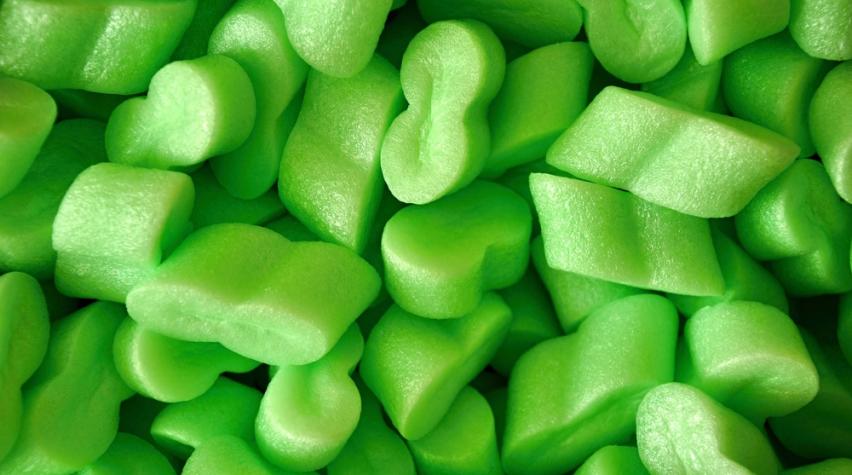
Researchers at Perdue University have demonstrated that it’s possible to convert waste packing peanuts into high-performance carbon electrodes for rechargeable lithium-ion batteries that outperform conventional graphite electrodes.
While setting up a new lab, which meant receiving a lot of boxes with packing peanuts, researchers were inspired to make use of these packing materials that would otherwise simply be discarded. The researchers used the peanuts to create carbon-nanoparticle and microsheet anodes from polystyrene and starch-based packing peanuts.
In a press release, researcher Professors Vilas Pol said, “Although packing peanuts are used worldwide as a perfect solution for shipping, they are notoriously difficult to break down, and only about 10 percent are recycled." He describes the team’s discovery as “a very simple, straightforward approach," adding that “the peanuts are heated between 500 and 900 degrees Celsius in a furnace under inert atmosphere in the presence or absence of a transition metal salt catalyst." It is the remaining material that is then processed into the anodes.
Postdoctoral research associate Vinodkumar Etacheri added that “the process is inexpensive, environmentally benign and potentially practical for large-scale manufacturing. Microscopic and spectroscopic analyses proved the microstructures and morphologies responsible for superior electrochemical performances are preserved after many charge-discharge cycles."
Long-term electrochemical performance of these carbon electrodes are very stable. the researchers were able to cycle the electrodes 300 times without significant capacity loss.
For more information, see the press release.



Comments
This is a great story. Every chemical engineer should try to use renewable material and recycled material for most raw materials. This is a great contribution to the society.